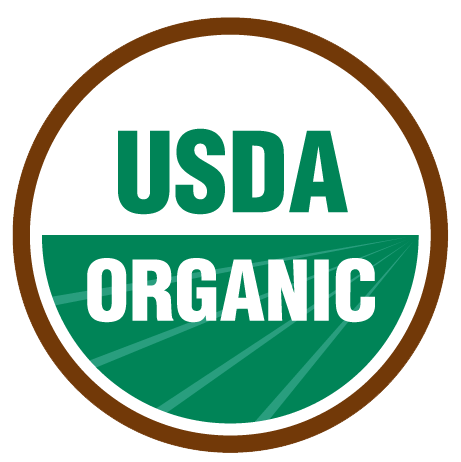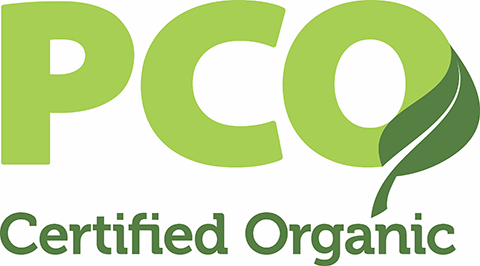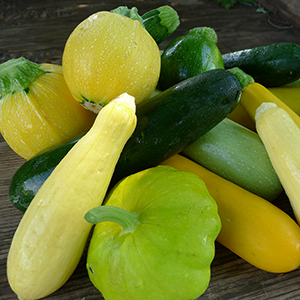
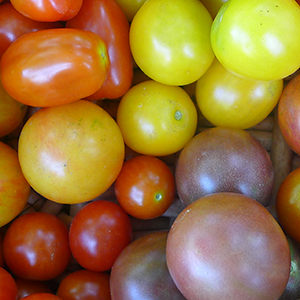
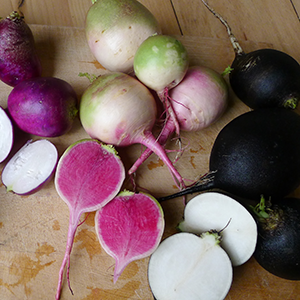

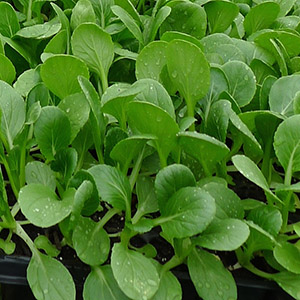
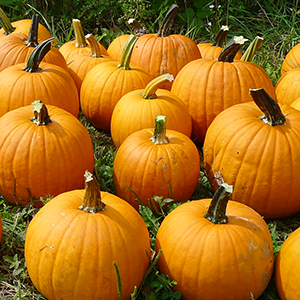
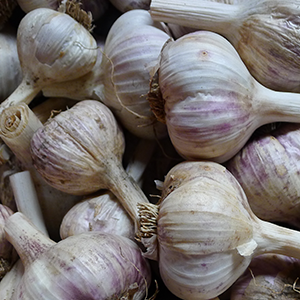



News and Notes | The Anchor Run Blog
Displaying a Single Post |
Show Recent Posts
October 15, 2017
Broccoli and Cauliflower Tip
By Linda Dansbury
Broccoli and Cauliflower Tip
By Linda Dansbury
"I had to expand this section using my own words, to educate myself and membership." - Farmer Derek
Because our farm broccoli and cauliflower are raised organically they're more susceptible to a variety of pests and diseases in the field that conventional and sprayed organic farms might be able to treat for. Thus, after harvest and in storage they can deteriorate quickly so they should be eaten or cooked very soon after pick up.
We do all that we can to minimize pest and disease pressure on the farm in a proactive and preventative way: crop rotation, clean seed source, soil improvements like cover cropping and mineral amendments, healthy transplants, a clean and weed minimal field, floating row cover barriers. However, it is impossible to remove/eradicate all sources of scourge since there are many wild species of plants that act as hosts to our "enemies". Normally the pest pressure remains in the background, is tolerable, until conditions allow for extreme spreading.
Of the plethora of pest pressures we deal with on the farm that impact the growing of brassica family crops (cabbage, broccoli, cauliflower, kale, ect.), in the fall the two main issues we face are bacterial black rot (aka Xanthomonas campestris pv. campestris) and nibbling by insects such as the harlequin bug, imported cabbage worm, cabbage looper, and cross-striped cabbage worm (more info).
The current warm and moist weather pattern exacerbates the black rot problem which spreads very quickly during these conditions. Crops that are unfortunately most susceptible seem to be broccoli and cauliflower which I believe is also because the harlequin bugs seem to enjoy munching on them the most, assisting in its spread. Of course, every time we walk through the fields to harvest these crops we also trail around the spores helping it spread. But don't worry; it's not like the entire field is a mass of smelly rotting brassicas (not yet at least). The symptoms are just obvious to you as the eater in the form of a soft/dark spot or blemish on the head. The sunny dry weather forecast for this week should halt or slow its spread. We're also near the end of the broccoli and cauliflower harvest but will need to monitor closely the adjacent cabbage patch.
Okay, back to Linda...
In my case I found what the problem was: cabbage worms/loopers hiding in the florettes! Even under refrigeration, those damaging critters keep eating, causing the heads to rot.
I learned that if I know I am not going to eat the broc/caul within a couple days, I cut the heads and carefully look for those dastardly worms and commit wormicide on any I come across. The result is the veggies keep much longer once they are not being "eaten alive".

POSTS BY TYPE
POSTS BY MONTH
